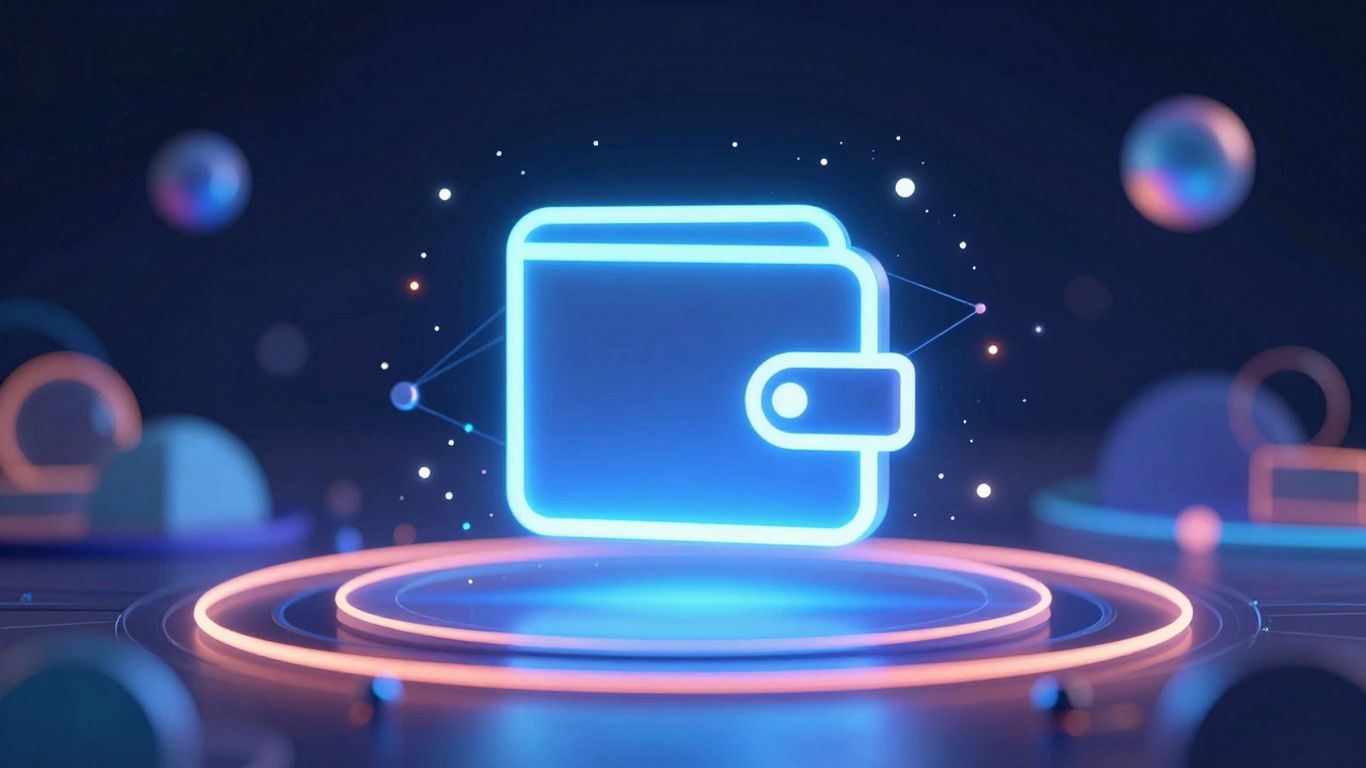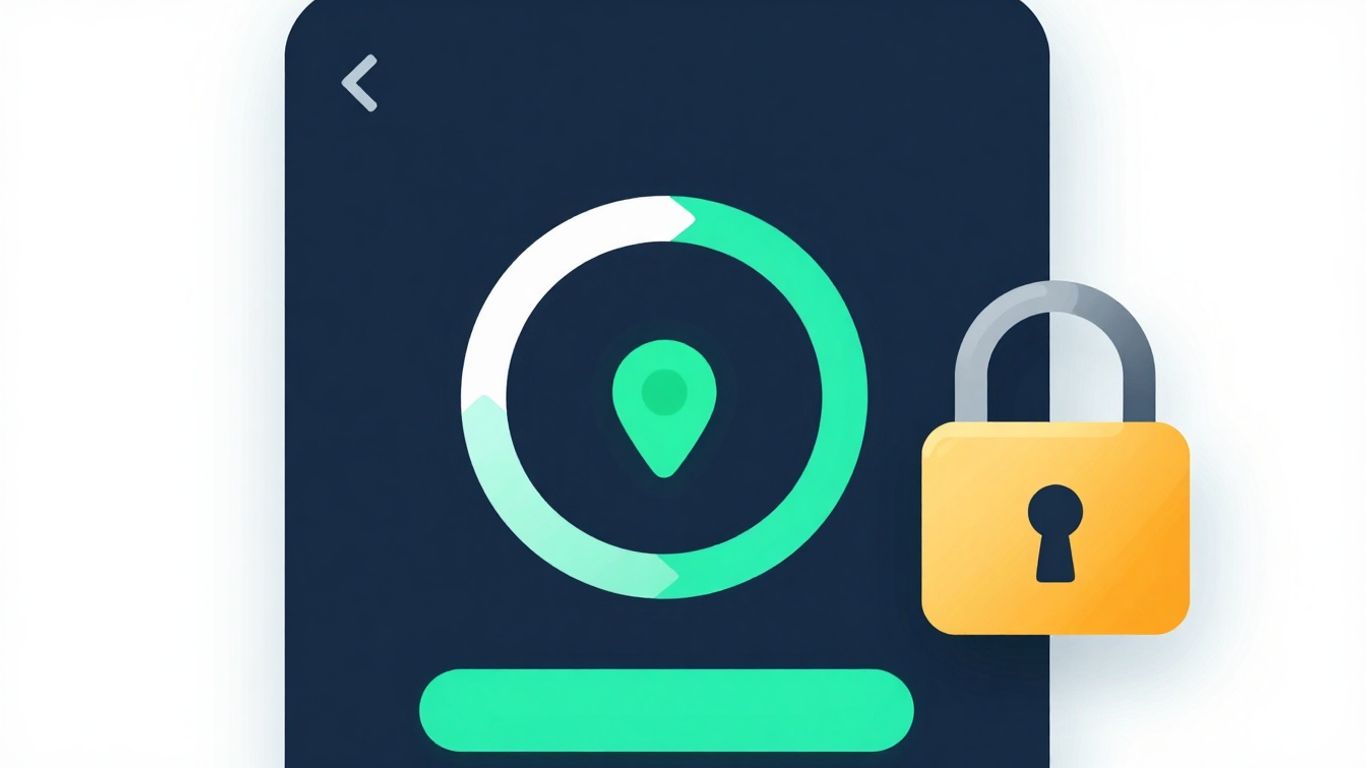[ newsletter ]
Stay ahead of Web3 threats—subscribe to our newsletter for the latest in blockchain security insights and updates.
Thank you! Your submission has been received!
Oops! Something went wrong. Please try again.
Discover how blockchain for privacy is transforming data security in the digital age with innovative solutions.





In today's digital landscape, where data breaches and privacy concerns are rampant, blockchain technology emerges as a beacon of hope. It goes beyond just being the backbone of cryptocurrencies; it offers a revolutionary approach to data security. By decentralizing information storage and enhancing user control, blockchain for privacy is changing the way we think about protecting our personal data. In this article, we will explore how blockchain can transform data security and privacy, highlighting its innovative features, real-world applications, and future potential.
Blockchain tech is getting a lot of buzz, and for good reason. It's not just about cryptocurrency anymore; it's also about changing how we think about data security and privacy. Traditional systems are struggling to keep up with modern threats, and blockchain offers a different approach.
So, what's the big deal with blockchain? Well, it's built on a few key ideas. First, there's decentralization. Instead of one central place holding all the data, it's spread across many computers. Think of it like a digital ledger that everyone has a copy of. Then there's immutability. Once something is recorded on the blockchain, it's really hard to change. It's like writing in permanent ink. These principles make blockchain a secure and transparent way to manage information.
Blockchain brings some serious upgrades to data security. Encryption is a big one. Data is scrambled so that only authorized people can read it. Also, the distributed nature of blockchain makes it harder for hackers to target a single point and steal everything. It's like having multiple locks on a treasure chest, each needing a different key. Plus, the immutable ledger means that any changes are tracked and visible, making it easier to spot fraud or tampering.
Decentralization is a game-changer for privacy. In traditional systems, companies hold all your data, but with blockchain, individuals have more control. You decide who gets access to your information and when. This is especially important in a world where data breaches are becoming more common. Blockchain's decentralized nature helps to reduce the risk of a single point of failure, making it a more secure and private way to manage data. It's about putting the power back in the hands of the users.
Blockchain's combination of decentralization, immutability, and encryption offers a more secure and reliable way to protect your information. It's not a perfect solution, but it's a step in the right direction towards a more private and secure digital world.
Blockchain tech isn't just about cryptocurrency; it's also a pretty big deal for keeping your data safe. Traditional systems are often centralized, making them vulnerable to attacks. Blockchain offers some cool features that give you more control over your personal information. Let's take a look at some of them.
Blockchain uses something called pseudonymity, which means you don't have to reveal your real identity when making transactions. Instead of your name, transactions are linked to a wallet address. Think of it like using a nickname online – people can see what you're doing, but they don't necessarily know who you are. This gives you a degree of privacy while still allowing for transparency on the public ledger.
Ever wish you could prove something without revealing all your personal details? Blockchain makes that possible. Selective disclosure mechanisms let you share only the data that's absolutely necessary for a transaction. For example, you could prove you're over 21 without revealing your exact age or date of birth. Zero-knowledge proofs, like zk-SNARKs, are one way to achieve this. It's like showing your ID at a bar – you prove you're old enough to drink, but you don't have to tell the bartender your address or social security number.
Imagine having complete control over your digital identity. With decentralized identity management, that's the idea. Instead of relying on companies or governments to manage your personal data, you hold the keys. You decide who gets access to what information, and when. This puts you back in the driver's seat when it comes to your privacy. It's a shift from trusting third parties to trusting yourself.
Blockchain's privacy features are a big step forward in data security. They offer a way to interact online without sacrificing your personal information. It's about giving individuals more control and creating a more secure digital world.
Here's a quick comparison of traditional vs. blockchain identity management:
Blockchain isn't just a buzzword anymore; it's showing up in all sorts of places, solving real problems related to data security and privacy. It's pretty cool to see how this technology is moving beyond just cryptocurrencies and actually making a difference in how we handle sensitive information. It's becoming a go-to solution for industries needing better data protection.
Finance is a big one. Think about it: fraud prevention, secure transactions, and keeping your financial data safe. Blockchain's transparent ledger makes it harder for shady stuff to happen. Banks and exchanges are starting to use blockchain to make sure transactions are legit and tamper-proof. It's like having a super-secure digital vault for your money.
Healthcare is another area where blockchain is making waves. Patient data is super sensitive, and keeping it safe is a huge deal. Blockchain offers a way to store and share medical records securely, making sure only authorized people can get to it. This not only protects patient privacy but also helps prevent data breaches, which can be a total nightmare for everyone involved. Imagine a world where your medical history is safe and sound, thanks to blockchain.
Ever wonder where your stuff comes from? Blockchain is changing supply chain management. It creates a record of every step a product takes, from the factory to your doorstep. This makes it easier to spot fake products, ensure things are authentic, and keep track of everything along the way. It's all about building trust and making sure you know exactly what you're getting. No more wondering if that "organic" label is actually legit.
Blockchain is already making a big impact on data security and privacy. It's not just about the tech; it's about building trust and making sure our data is safe in a world that's becoming more and more digital. As blockchain keeps evolving, it's going to play an even bigger role in how we protect our information and interact with the world around us.

Blockchain tech is always changing, and that's especially true when it comes to privacy. There are some really interesting things happening right now that could make a big difference in how we protect our data.
One of the big problems with blockchain is that different blockchains don't always talk to each other. Cross-chain solutions are trying to fix that. They let data and assets move between different blockchains, which can be really useful for privacy. For example, you could use one blockchain for storing sensitive data and another for processing it, keeping things more secure. This also allows for more complex applications that need to use features from multiple blockchains. It's like having different tools in a workshop that can all work together.
AI and IoT are creating tons of data, and blockchain can help manage it securely. Imagine using blockchain to secure data from IoT devices in your home. Only authorized people could access it, and you'd have a record of everything that happened. AI can also help analyze blockchain data to find patterns and improve security. It's a powerful combination that could change how we think about data privacy. The integration with AI and IoT is still in its early stages, but the potential is huge. For example, blockchain in financial services can be enhanced with AI to detect fraud more effectively.
There are some new privacy technologies that are being built on top of blockchain. Zero-knowledge proofs are one example. They let you prove something is true without revealing any other information. Another example is homomorphic encryption, which lets you perform calculations on encrypted data without decrypting it first. These technologies are still pretty new, but they could make blockchain even more private and secure. It's like adding extra layers of protection to your data.
These technologies are constantly evolving, and it's important to stay up-to-date on the latest developments. The future of blockchain for privacy depends on these innovations.
Here are some of the emerging privacy technologies:
Blockchain tech, while promising, isn't without its speed bumps. It's not all sunshine and rainbows when you start digging into the practical side of things. Let's be real, getting this tech off the ground and into everyday use is proving to be a bit of a climb.
Okay, so here's the deal: blockchain networks can get really slow when lots of people are trying to use them at the same time. Think rush hour on the internet. This is because each transaction needs to be checked by a bunch of computers, and that takes time. It's like everyone in the world trying to use the same phone line at once. Not ideal, right? This is a big problem if we want blockchain to handle things like everyday payments or managing huge amounts of data. For example, transaction latency can be a real headache.
Figuring out the legal stuff around blockchain is like trying to assemble furniture without instructions. Governments are still trying to wrap their heads around what blockchain is and how to regulate it. This creates a lot of uncertainty, which can scare away businesses and investors. We need clear rules so everyone knows where they stand. It's like needing a regulatory framework to make sure everyone plays fair.
Let's face it, most people don't really understand how blockchain works. It sounds complicated, and honestly, it kind of is. If people don't get it, they're not going to trust it or use it. We need to make blockchain easier to understand and show people why it's useful. Think of it like explaining the internet to someone in the 1980s – it takes time and patience. We need to boost user education so everyone can benefit.
Getting more people on board with blockchain means making it less intimidating. We need to show them how it can make their lives easier and more secure, without getting bogged down in technical jargon. It's about highlighting the benefits in a way that everyone can understand.

Blockchain tech is already making waves in how we handle data security and privacy, and honestly, it feels like we're just scratching the surface. It's not just about what it can do now, but what it will do. Think about a world where your data is truly yours, secured by tech that's almost impossible to tamper with. That's the promise of blockchain.
I think we're going to see blockchain popping up everywhere. Right now, it's kind of niche, but as more people understand how it works and what it can do, adoption will grow. It's like when the internet first came out – seemed complicated, but now everyone uses it. I expect the same thing to happen with blockchain. Governments are also starting to look at blockchain to secure personal data in public records. From national IDs to voting systems, blockchain ensures that sensitive information is safely stored and tamper-proof.
Here's what I think will drive adoption:
Blockchain could seriously change how we think about data security. Instead of relying on big companies to protect our info, we can take control ourselves. This means less risk of hacks and data breaches. Plus, blockchain's transparency means it's easier to see if something goes wrong. It's like having a digital ledger that everyone can check.
Imagine a world where your medical records are stored on a blockchain. Only you and your doctor can access them, and every change is recorded. No more worrying about hospitals losing your data or insurance companies snooping around. That's the power of blockchain for data security.
I'm really excited about blockchain's potential to create a more decentralized internet. Right now, a few big companies control most of the web. Blockchain could change that by allowing us to build apps and services that aren't controlled by anyone. This means more freedom and less censorship. It's a big idea, but I think it's possible. Blockchain offers a public ledger where anyone can verify transactions, which helps keep things honest. However, sensitive details (like your personal data) remain private thanks to encryption and smart contract mechanisms.
Here's how blockchain could help:
In wrapping things up, it’s clear that blockchain is changing the game when it comes to data security and privacy. This tech isn’t just a trend; it’s a real solution to the problems we face today. With its decentralized nature and strong encryption, it makes it tough for hackers to mess with our data. Sure, there are still some bumps in the road, like getting everyone on board and figuring out regulations. But as we move forward, the potential for blockchain to protect our personal information is huge. So, let’s keep an eye on this space and see how it evolves. The future of data security looks promising, and blockchain is at the forefront of that change.
Blockchain is a special technology that keeps data safe by storing it across many computers instead of one central place. This makes it hard for anyone to change or steal the information.
Blockchain uses strong encryption and allows you to control who sees your information. You can share only what you want without giving away your whole identity.
In healthcare, blockchain helps protect patient records by making sure only the right people can see them. This reduces the chance of data breaches and keeps sensitive information safe.
Yes! Blockchain makes financial transactions safer by ensuring that all records are transparent and cannot be tampered with, which helps prevent fraud.
Some challenges include making sure it can handle lots of data quickly, figuring out regulations, and teaching people about its benefits.
The future looks bright for blockchain! It is expected to continue changing how we protect our data, especially as new technologies and solutions are developed.


